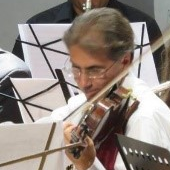Recent Advances in the Equation with Nonlinear Fractional Diffusion
A special issue of Fractal and Fractional (ISSN 2504-3110). This special issue belongs to the section "General Mathematics, Analysis".
Deadline for manuscript submissions: 31 December 2024 | Viewed by 913
Special Issue Editors
Interests: theoretical physics; applied mathematics; elementary particle physics
2. Department of Mathematics and Physics, Autonomous University of Aguascalientes, Aguascalientes 20131, Mexico
Interests: fractional calculus; difference equations; differential equations
Special Issues, Collections and Topics in MDPI journals
Special Issue Information
Dear Colleagues,
The development of fractional calculus has grown considerably in recent decades, and its application in diffusion equations has been no exception to this. The applications of this type of equation can include mechanical, electronics, epidemiological, biological, and social systems, among others. That is why the concern arises to promote the latest achievements in this area of research. In this Special Issue, we will present works that cover the application of diffusion equations in fractional partial derivatives that include nonlinear terms, including stochastic or non-stochastic.
We also hope to receive new proposals for their corresponding solution methods, as well as their structural and conservation properties.
Dr. Armando Gallegos
Prof. Dr. Jorge E. Macías Díaz
Guest Editors
Manuscript Submission Information
Manuscripts should be submitted online at www.mdpi.com by registering and logging in to this website. Once you are registered, click here to go to the submission form. Manuscripts can be submitted until the deadline. All submissions that pass pre-check are peer-reviewed. Accepted papers will be published continuously in the journal (as soon as accepted) and will be listed together on the special issue website. Research articles, review articles as well as short communications are invited. For planned papers, a title and short abstract (about 100 words) can be sent to the Editorial Office for announcement on this website.
Submitted manuscripts should not have been published previously, nor be under consideration for publication elsewhere (except conference proceedings papers). All manuscripts are thoroughly refereed through a single-blind peer-review process. A guide for authors and other relevant information for submission of manuscripts is available on the Instructions for Authors page. Fractal and Fractional is an international peer-reviewed open access monthly journal published by MDPI.
Please visit the Instructions for Authors page before submitting a manuscript. The Article Processing Charge (APC) for publication in this open access journal is 2700 CHF (Swiss Francs). Submitted papers should be well formatted and use good English. Authors may use MDPI's English editing service prior to publication or during author revisions.






